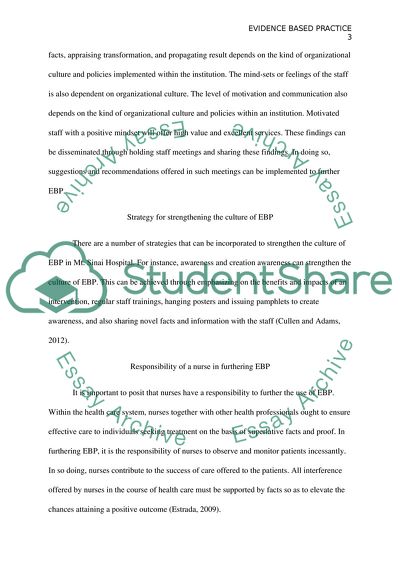Creating a Culture Evidence Based Practice Term Paper. https://studentshare.org/nursing/1808715-evaluation-of-evidence-based-practice-in-mt-sinai-hospital
Creating a Culture Evidence Based Practice Term Paper. https://studentshare.org/nursing/1808715-evaluation-of-evidence-based-practice-in-mt-sinai-hospital.


